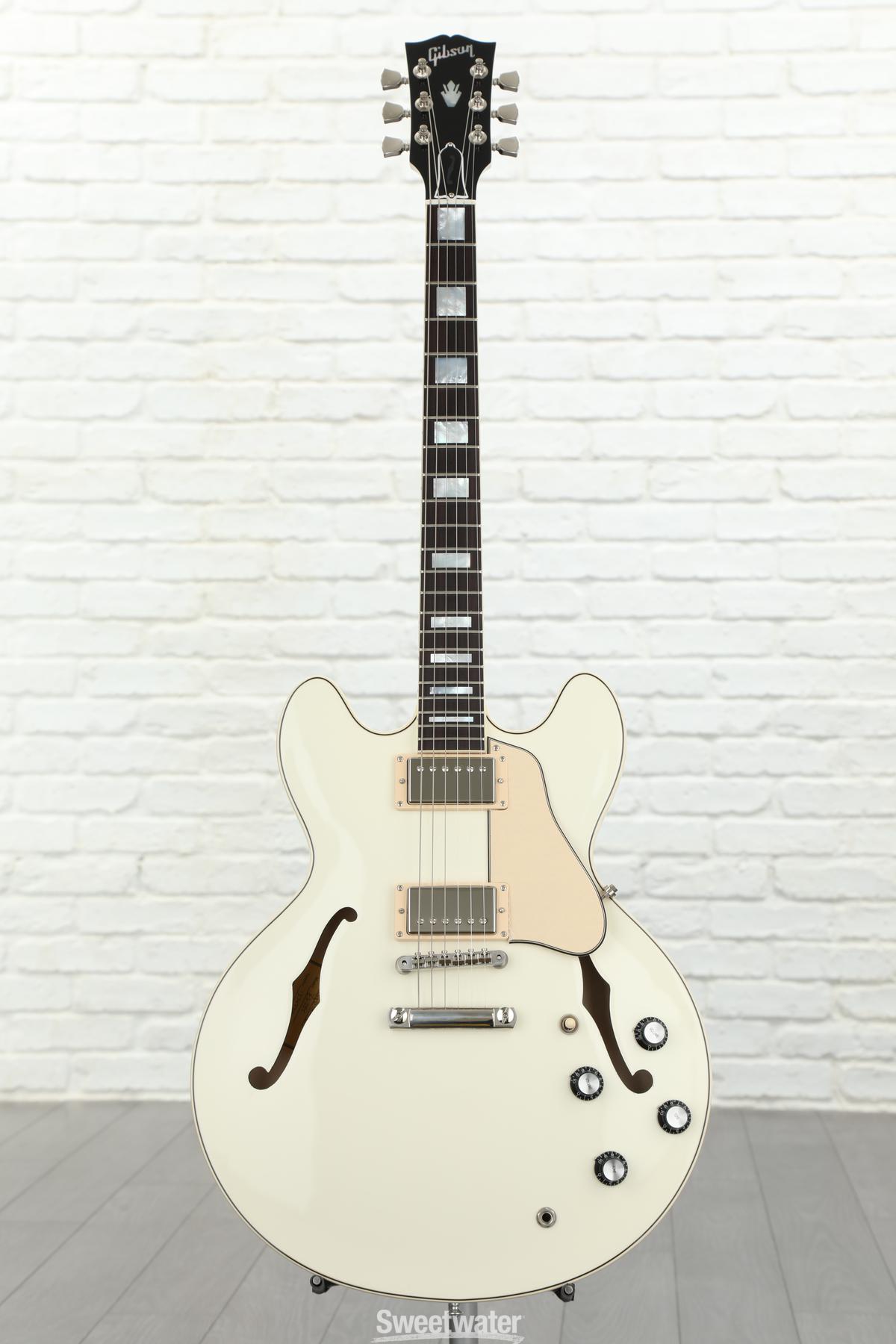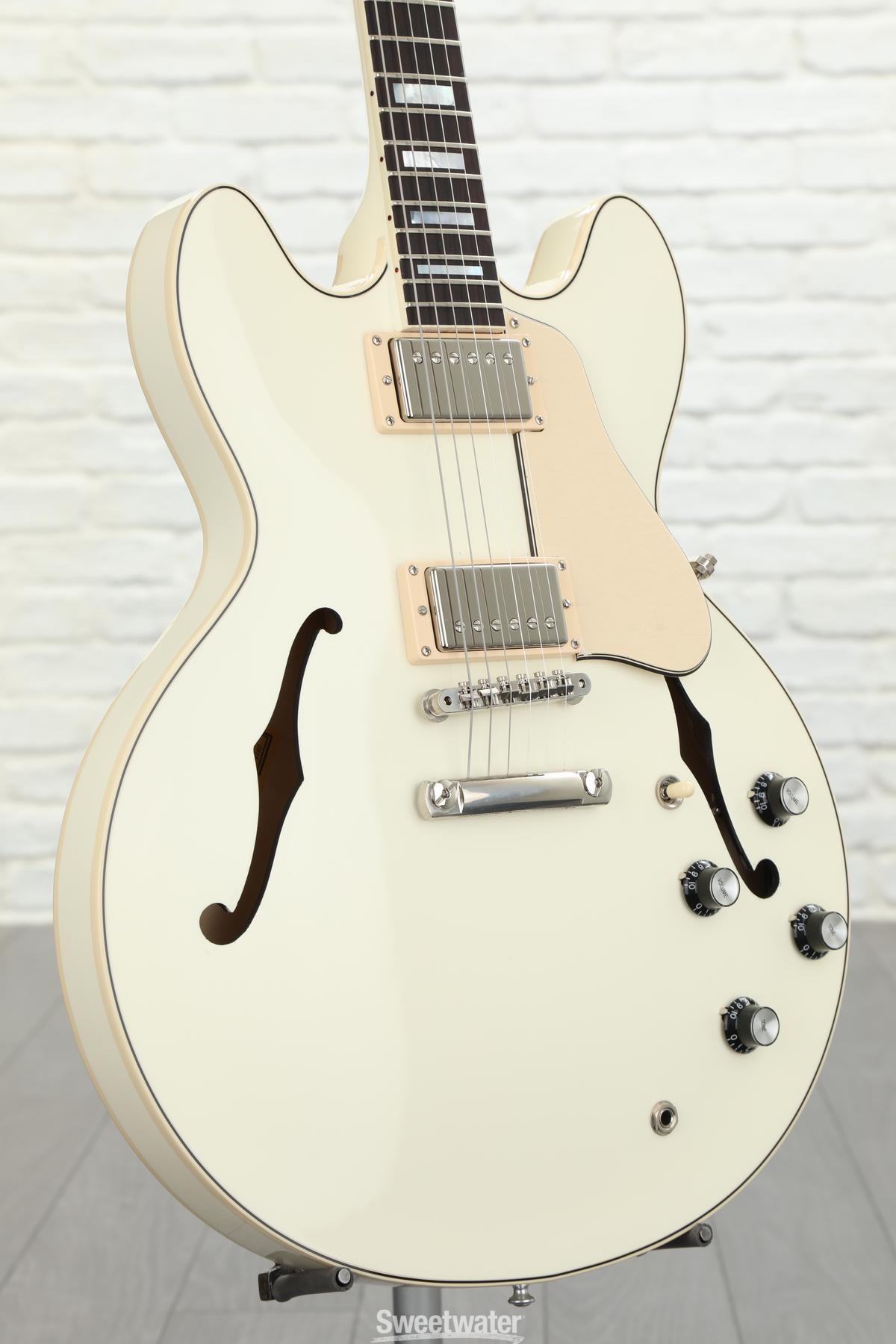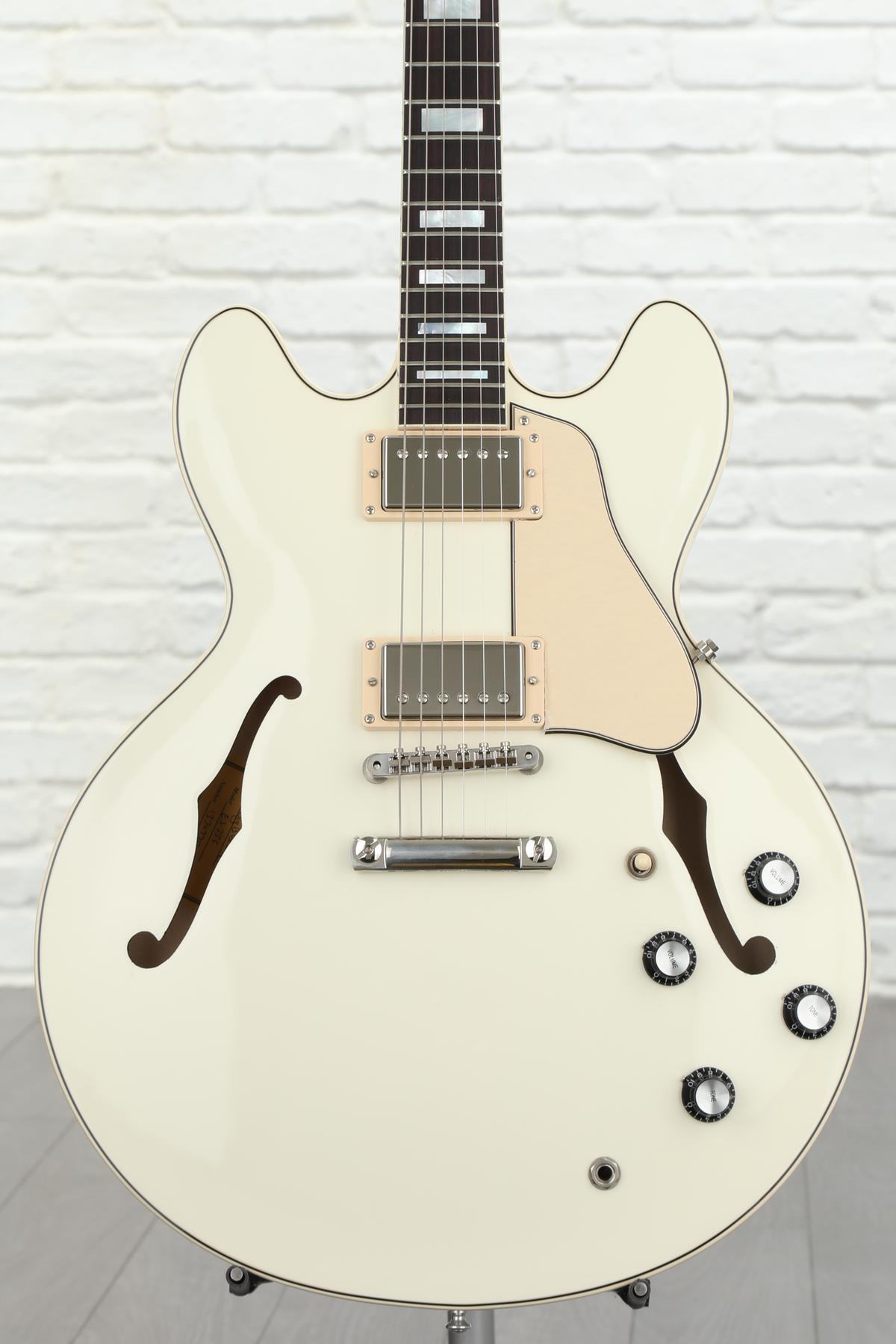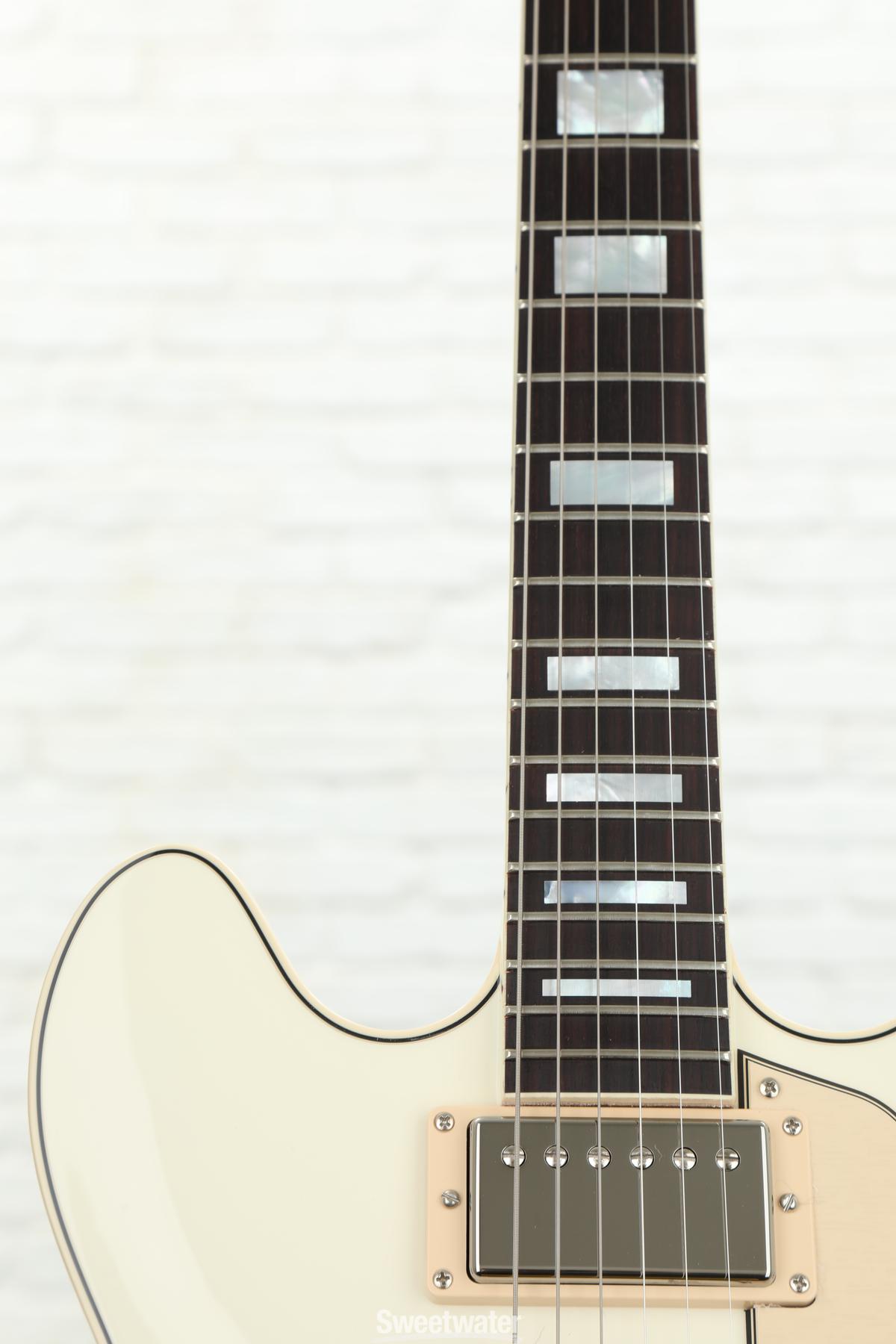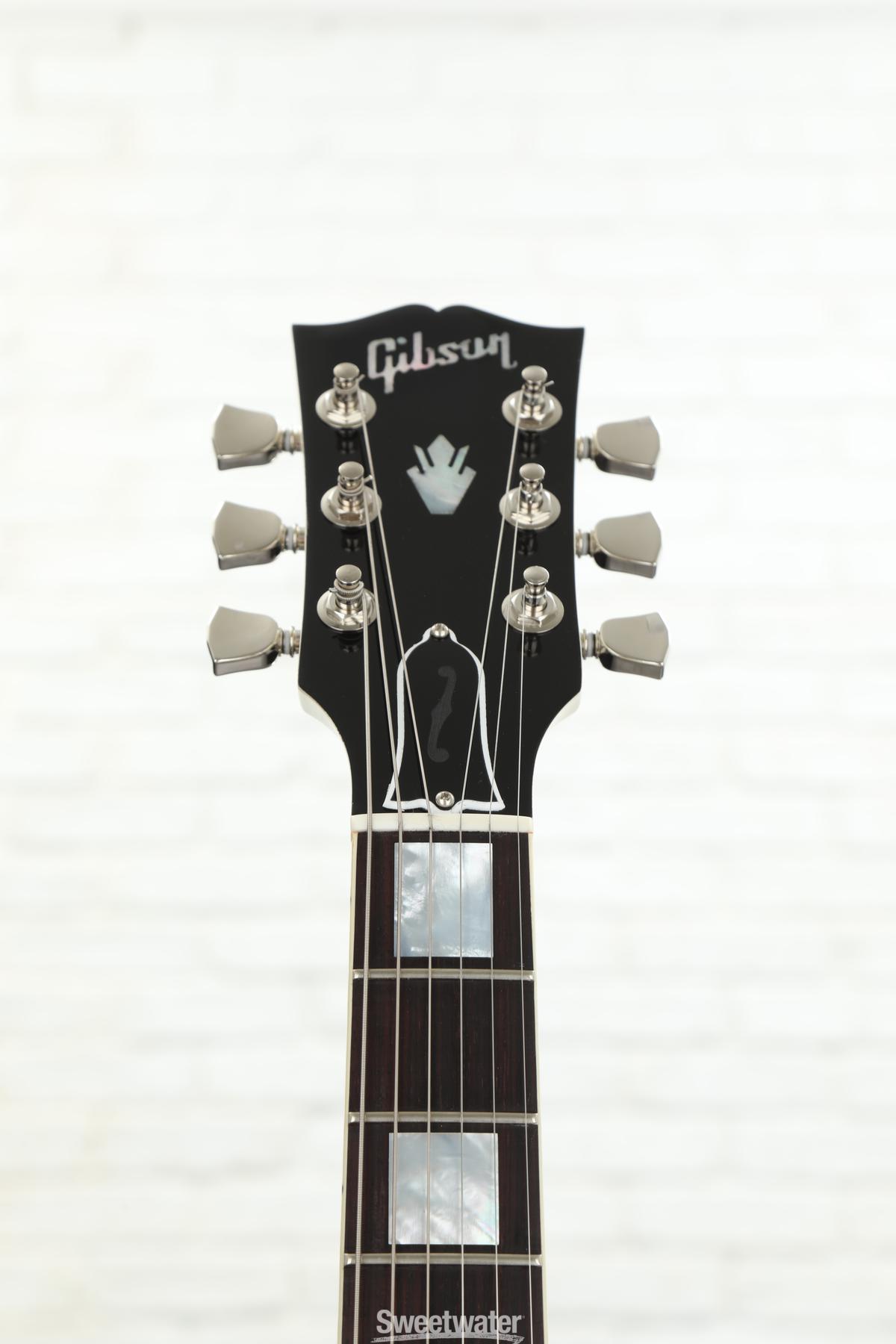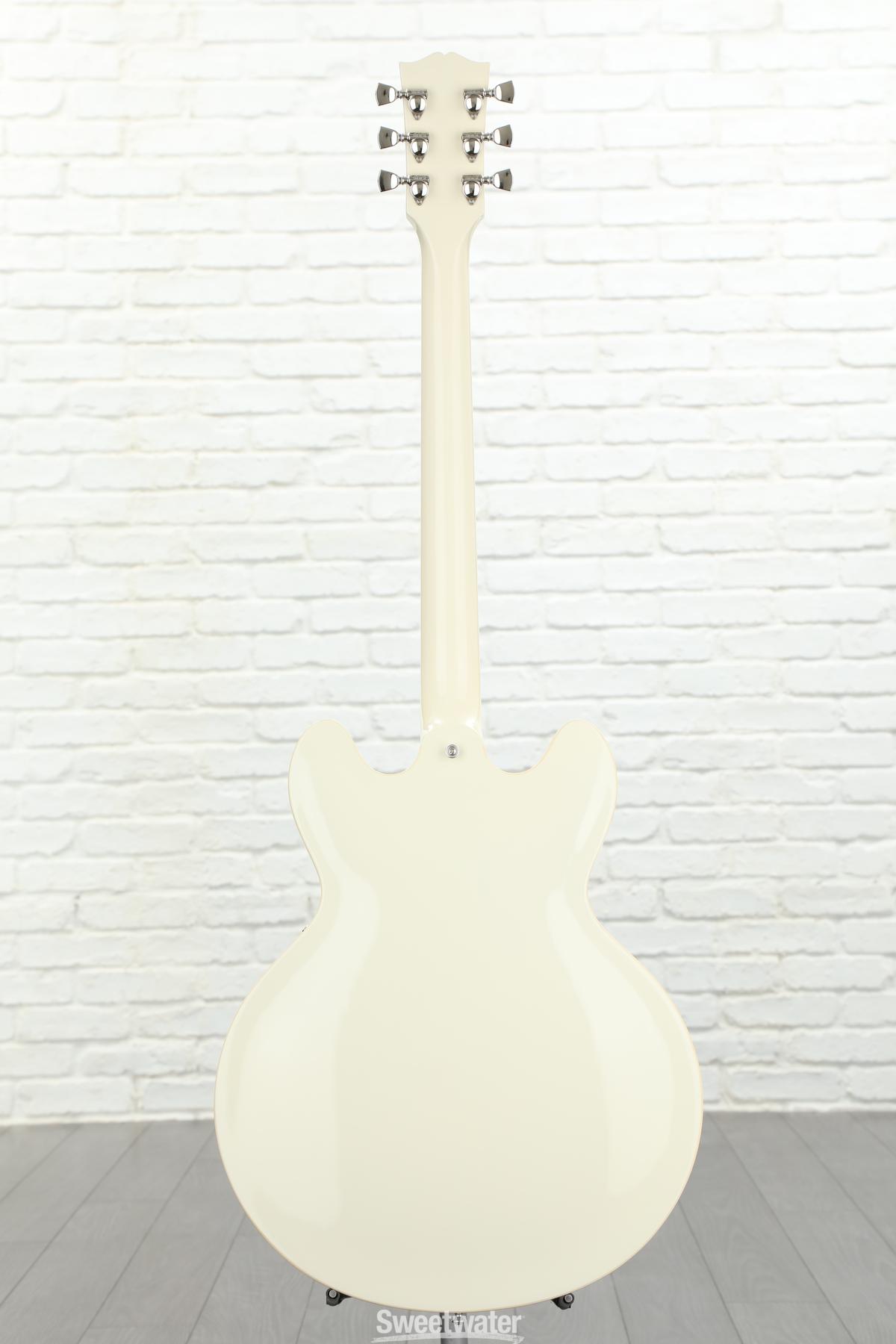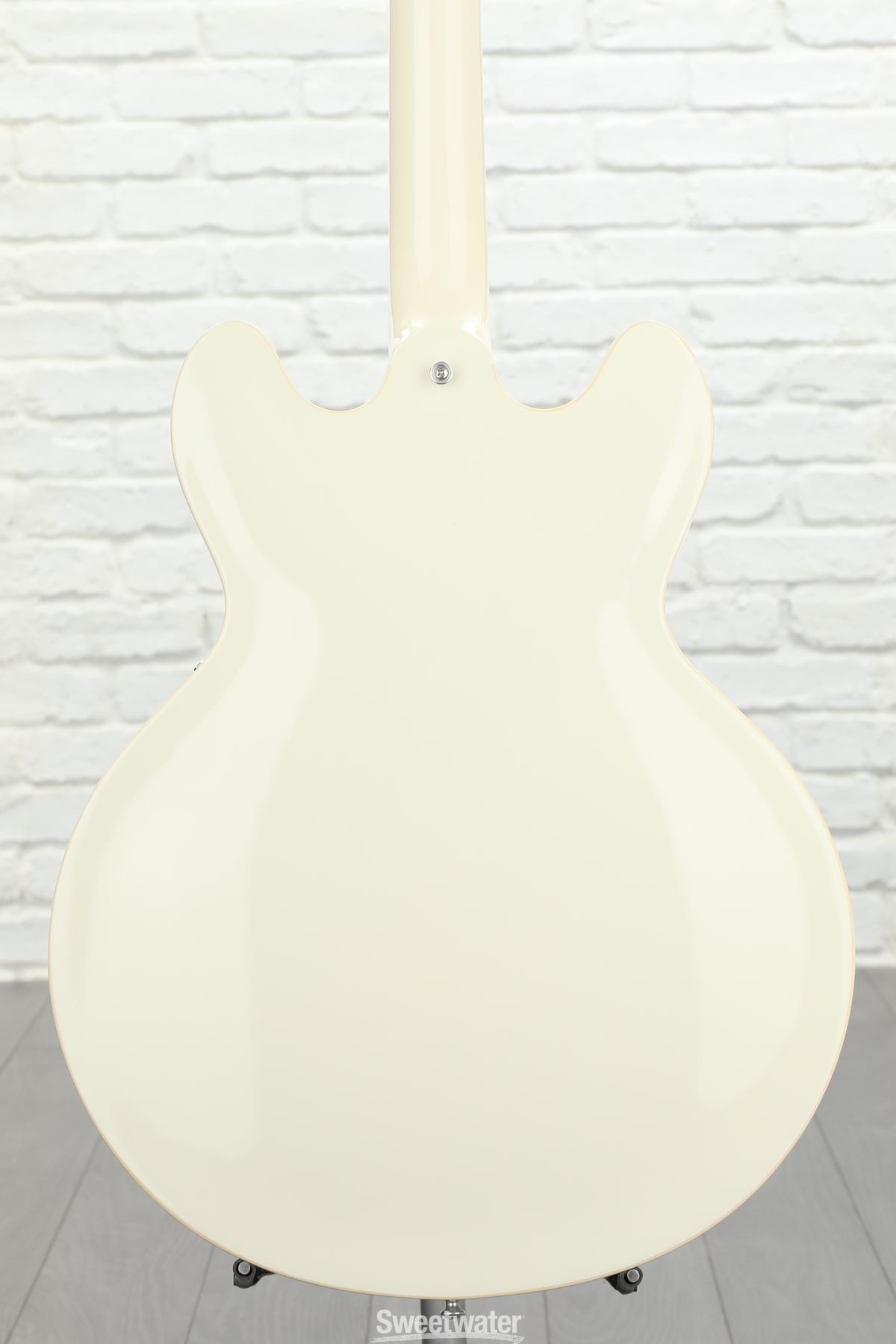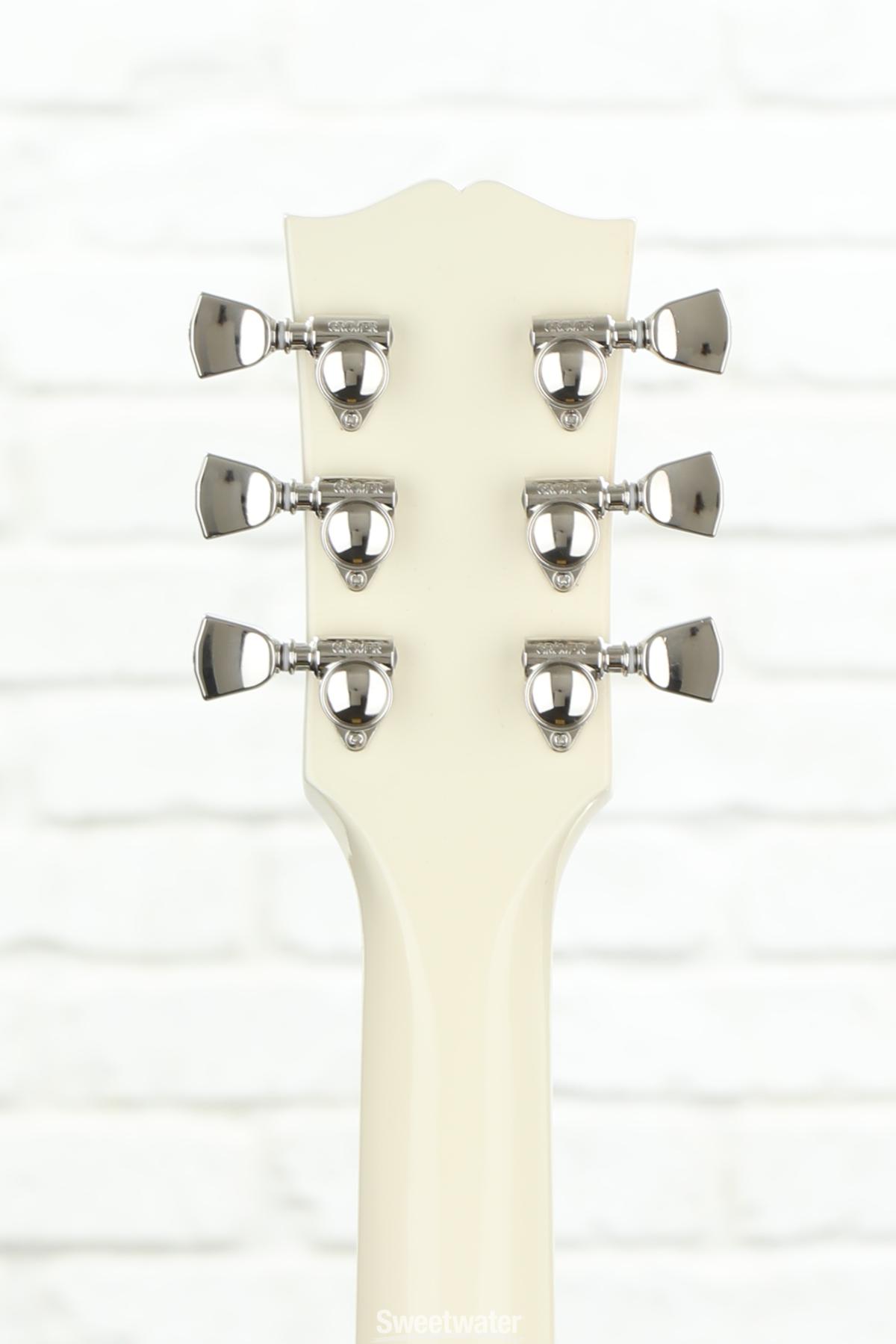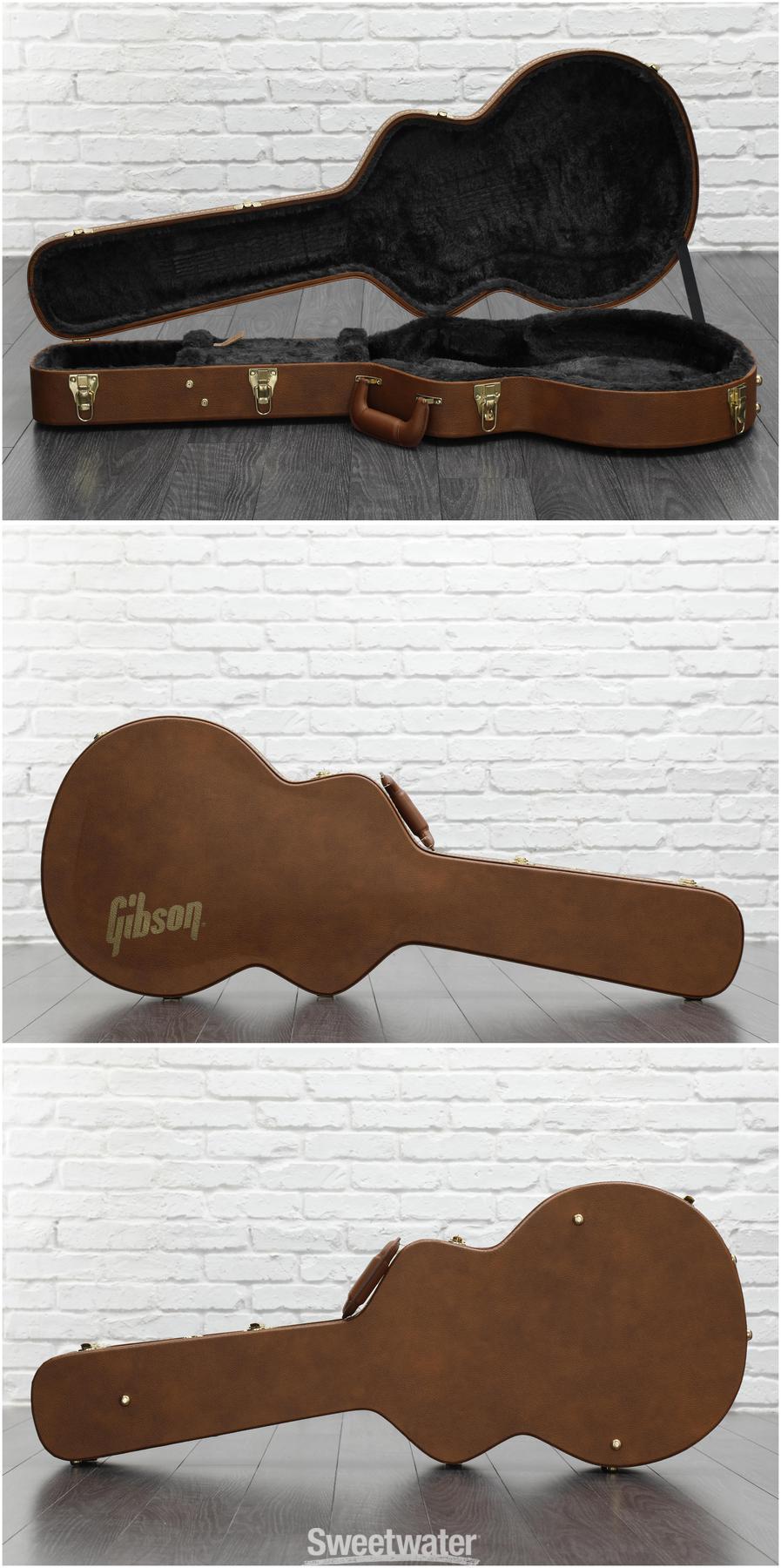Mark Day gets around. Currently the Artist in Residence for Fractal Audio Systems, Mark brings decades of experience and a keen appreciation for the great tones of classic and hard rock. Mark’s guitar skills have landed him gigs with none other than the legendary Dave Friedman, with whom he worked alongside during a stint in LA that saw him also working for Tone Merchants and fielding offers from the likes of Suhr Guitars. Mark has worked directly with the likes of Eddie Van Halen and the band, Steve Stevens, George Lynch, Jerry Cantrell and many other legends of the six string.
Mark Day has long been known for his presence on the internet where he has recorded dozens of gear demos and song covers. Mark combines great chops and musicianship with a tongue in cheek approach that makes his videos both entertaining and educational. He’s known for his silly faces and self deprecating style, both elements which are often lacking among “serious” musicians.
Mark has been cited as a primary reason for many gear purchases, not insignificantly for Fractal Audio Axe Fx units both past and present. Yours truly owes a debt of gratitude to Mark for my original AxeFx Ultra and later AxeFx II purchases. (not to mention a Suhr Modern).
Mark’s videos have converted countless analog non believers to the superiority of the AxeFx by the simple approach of playing songs. With Mark’s great understanding of tone and musicianship, you can see what’s truly possible with this amazing digital modeler, which in many ways has surpassed its analog predecessors.
Darren: Can you just tell us your name and your occupation or job title?
Mark: I work for Fractal Audio and I’m their Artist in Residence.
Darren: So tell me what's on the what's on the front burner at Fractal, are there any high-priority projects?
Mark: I’m not actually working on the firmware, that’s actually the geniuses here at Fractal, like Cliff. I get to reap the benefits of their brilliance. I just get to do little demos here and there. It’s fun for me to see these products and enhancements before the general public, I feel really lucky to do that because there are so many more deserving players out there, that’s for sure. I'm just, I would say, the average player with better than average luck.
Darren: I think there are a lot of people that would dispute that. We know you’re Canadian and you’re humble. (we went off the record here for a short bit, there are non disclosure agreements in place for Mark’s job at FAS so we were just establishing some limits)
Darren: What are your earliest musical memories, as a child?
Mark: I’m a late bloomer, I didn’t actually pick up the guitar until I was about seventeen. As a kid at age thirteen-fourteen, I was always looking at the Sears catalog and you would see electric guitars and it always piqued my interest and I would ask my parents, can I get an electric guitar? They were not into that kind of thing. I guess I was attracted to it and I always liked listening to music and I think the thing that really did it for me like so many guys my age, baby boomers, seeing Kiss, you know, Kiss Alive, that first live record that they did. That just made me want to play music and to be like Kiss. I remember listening to that first live record and hearing the way the guitar sounded, I couldn’t believe how powerful six strings could sound. That was my first kind of eye-opening experience to music and guitar and it wasn’t long after I got a summer job and saved up all my money and went down to the local music store and bought a guitar and it stayed in my hands like six, seven, eight hours a day every day for a long long time.
Darren: So you were totally into from the get go.
Mark: Totally. It was like a drug.
Darren: Do you remember your first guitar? Do you still have it?
Mark: I don’t have it. It was a Hofner Les Paul copy.
Darren: Oh yeah, I know the Hofners.
Mark: Yeah (laughs) it was a real piece of junk, the neck was twisted on it, but it was the first guitar that I bought. I bought it with my own money and I think I paid, $200 with a case, so it was nothing special for sure, but I couldn’t put it down. I played it all day and all night. I would fall asleep with it in my hands, and I didn’t go outside, I just stayed in and played my guitar.
Darren: Were you self taught? Did you take lessons?
Mark: Yeah, absolutely. You guys in this day & age have the internet, tablature, and millions of people that play guitar, they’re all over YouTube. If you want to learn how to play a song and you’re not into theory or tab, you can just google search and someone will be doing a lesson on it. Whereas, when I was young we had LPs, you know, records, and I would sit there in front of the record player, and you would have to tune your guitar to the record and you couldn’t slow it down, so you had to pick up the needle and play a little section of the song and try and pick it out, play along with it, then go on to the next section. It’s not like it is today where someone has taken the time to write the tablature out, and done a lesson on it, so on and so forth. It was a lot more difficult to learn but it was fun, it kept me busy.
Darren: It trained you to use your ear, and I think that’s probably the most critical component.
Mark: Yeah, definitely. To be able to pick up parts in songs. There are some people I know that can listen toa song and twenty minutes later they’ve got every single note. I was never one those guys, but I had a decent ear. It served me well and it helped me to learn songs, it got me into bands, so it was a lot of fun.
Darren: Just to give you some context, you mentioned Kiss. My actual first album was “Dressed to Kill”, the LP. I’m not a youngster by any means, I’m 47, so I have a fairly similar frame of reference to you.
Mark : Okay, then you know exactly where I’m coming from.
Darren: Yeah, I played guitar a little bit in my teens and I was in the Army for a long time, I put the guitar down, which was probably the stupidest thing I ever did, but I picked it back up about ten years ago, so I know where you’re coming from. Especially if it’s Van Halen I, you probably wore out several copies of it trying to figure out Eruption and everything else.
Mark: Actually back then when I heard Eruption it was almost deflating. I heard it and it was like “Oh My God!”. You know, here I was struggling to play simple things like “The Boys are Back in Town”, you know some Thin Lizzy stuff or some Kiss stuff and then when I heard Eddie play Eruption it was like “Oh My God!”
Darren: I don’t know about your experience, but I didn’t conceive that it actually was live guitar. It was actually a year or two before someone keyed me in and said, “No, that’s actually live, that’s one dude playing a guitar”. It was like “How?”. I couldn’t conceive of the sounds I was hearing when I first listened to VH1.
Mark: It was pretty mind blowing. I never thought I was good enough to even play that stuff. I didn’t learn Eruption, until probably, maybe ten years ago? I just felt that it was always just over my head. Especially the feel, he’s got such a slithery way of getting into notes, he’s got such a groove, it’s really hard to copy. When you hear him play that kind of stuff, if you want to cover it, you try to do it as close as you possibly can, but his style is really hard to emulate.
Darren: I agree, that’s what everybody misses, myself included is the groove. You can get the notes and get them all in the right sequence and maybe play it at speed, but if you don’t have the groove it just doesn’t work at all. That’s what makes all those guys great, Stevie Ray, Eddie, all those guys. You mentioned your parents, was there anyone musical in your family? Anyone that was a singer or played instruments?
Mark: Well, my brother played drums for awhile and he could sing but he only did it for a couple of years and he played in a band. I would say his drum career lasted about three years and that was it. He went on to other things. I was the only one in the family that ever played anything. Now, these days as I’m older I’ve got a bunch of second cousins, my cousin’s children, they all grew up to be very musical, they all play instruments and play in bands. When I was younger I was the only one.
Darren: You mentioned that you’re a product of your times because if you had the inclination back then it was a lot harder to break through and get an instrument and to see other people, and now everything is a couple of keystrokes away at least as far as exposure and lessons.
Mark: It’s almost like if you can’t play Eruption in three or four lessons you just give it up.
Darren: Exactly, because there’s four hundred other people on YouTube that can play it (laughs) so I know.
Mark: There are so many wildly amazing players out there, that I’ve just given up the competition when I was younger and now it’s not a competition. There are so many excellent players out there that I’m not in that class. I just kind of do it because I love it. I do what I like to do, and have fun at it. As long as I’m having fun at it then it’s a good thing.
Darren: To put a microscope on it a little bit, what parts are the fun parts to you? That’s kind of a vague question, I realize.
Mark: Yeah, the fun parts. I was never a writer. I’m a sideman, that’s for sure. I like playing other people’s stuff and that’s just what I like to do. I wrote when I was a little bit younger and wasn’t very good atit, and I didn’t really enjoy the writing process much. Whereas I really enjoy listening to players that really say something in their playing. Guys like Steve Stevens, George Lynch, or Steve Lukather, Gary Moore. Those kinds of players. I really enjoy listening to stuff that they put out that gives me the chill factor, makes my hair stand on end. Sitting down and learning those parts and kind of putting my own feel to it, that’s what’s fun to me. Just learning new things, even if it’s old songs and stuff, its new stuff to me, and accomplishing stuff that I didn’t think I could possibly play in a million years and being able to pull it off, that’s what’s fun to me.
Darren: I think a lot of people have that. Especially like you said, if it’s something that’s really taken you a long time because that delayed gratification when you finally get it and you realize how hard it was. Eruption, or whatever it is. You’ve got that whole nostalgia factor, you know, the longer you have to wait for something.
Mark: Yeah, exactly. I thank technology for coming up with some of the tools we have today. I think of certain software packages like Transcribe that you know, slow things down and you can tune the song and loop the song, and things like that which really aid in learning stuff properly. That’s a real godsend. I wish I had that stuff when I was younger. Also, just the sounds that you can get now. I remember in the 80s and 90s, building these huge racks of gear to get the sound that I wanted and now it comes in a black box like the AxeFx which is just amazing. An amazing, amazing tool that can get these great guitar sounds that you never thought possible and it’s right there. It’s easy to dial in and it makes you sound like a rock star through your Mac.
Darren: All the previously perceived evils of digitization and digital technology have now been overcome and not just for the convenience factor but just the quality is that it's at the point where human capacity is now the important difference. (the limitation isn’t the gear anymore, it’s truly in the hands of the player) Everybody's got their analog gear they love, and if it sounds good why change it? So, I don't argue with those guys necessarily, but it’s like you say that everything you can do inside a modeler like the AxeFx is crazy.
Mark: I hear things that people post, you know on Facebook or YouTube, just young people and the sounds they’re getting are like “Wow, how did they get it to sound like that?”. (in the past) To get sounds like that you’d have to sit in a million dollar studio for weeks on end with a world famous engineer to get those kind of sounds before and now anyone can go buy this box and put something out that sounds as good or better than a lot of the classic records.
Darren: So contrast the ease of access we have now, to how you had to learn, sometimes by brute force, so to speak, using your ear, how is it a negative to have all that stuff right there in front of you?
Mark: I don’t think it’s a negative at all. I wish I would have had it. I guess the benefit of going the long haul is I had to use my ear and I learned what I like and I can pretty much dial in a sound within a matter of seconds that I like. If someone puts an AxeFx in front of me and says “Here’s a blank preset, now find something”. A minute later I’m going to have something I can use. Which is really cool.
Darren: So, let’s explore that a little bit, because this is actually tied in to some questions I had already planned. Describe how you would build a preset, but in the context of what your years of analog experience bring to the table. What is that you know from those years, that you wouldn’t necessarily have if you had just been handed an AxeFx from the beginning.
Mark: Well, signal path for starters. I hope I understand signal path. I know what should go in front of an amp and what should go in the effects loop of an amp, post amp, post cabinet. So I know that, I know what I like to hear. When I look at the AxeFx, I always think about when I had a big rack, you know, a twenty space Bradshaw rig, where I had a few pedals in front of my preamp, and then ran all my post effects in the effects loop or after the preamp. I hated noise so I always had noise gates in my old rigs so I had absolutely no noise whatsoever on stage. I always used line mixers and stuff like that so that my guitar sound was always intact and I could blend in effects, kind of like a live mixing console. I used to do my own sound, I had my own PA system and I did sound for our band and I used to rent out PAs and I learned to never give the singer a microphone into a delay unit and then plug that into the mixer that’s not how it works. You plug the microphone into a channel on the mixer and then a send from that to a delay unit and then take the output from the delay unit into another channel where you can EQ that if you need to and you run it all in parallel so that you don’t get phase issues. I always look at setting up my guitar sound sort of like that. So, when I’m building a preset I’m always thinking about my big rig. Although you don’t really have to with the AxeFx. Sometimes people will ask why I’m running my delays in parallel, and I’ll say “You don’t have to.”, but I just do it out of habit.
Darren: Clearly for you, sitting in front of the AxeFx and seeing the grid layout, it’s not daunting for you like it might be for someone who doesn’t know what the components are, and you already know how they work. The AxeFx is thankfully intuitive if you have a basic understanding like you discussed.
Mark: I remember when I was younger and I couldn’t figure what In and Out meant. You know, “I’ve got two pedals, now what do I do? I’m going out of my guitar so it must go to the out plug.” You do stupid things like that. And there’s no sound until you finally understand signal path. You know that in goes to out and vice versa. You don’t have to worry about that with AxeFx because it’s all laid out for you. Sometimes old analog users are frightened by the grid, but it all makes sense once you look at it for a few minutes. It’s all very logically laid out and easy to use. It’s really easy to get a bad sound if you want to as well.
Darren: (laughs)
Mark: Tweaking things that you don’t know about, but if you just use the basic functions, like, the first thing to do is, I just tell people, bring up an amp, stick it in the middle of the grid and then put a cabinet block right after it. Then put shunts from the beginning to the end and pretend that amp block is just like the real amp. You’re going to go to the input gain, turn that up a bit, go to your tone-stack, forget about all the advanced parameters and just get a good basic sound into a cabinet block that you like. If you like Marshall 4x12s, there’s a million Marshall 4x12s there. Pick one, then try a bunch until you find the sound you like, then once you have the core sound then start adding delays, phasers, flangers, pitch blocks, stuff like that. Start with the basics and it’s really easy to get a good sound. A lot of people see all these advanced parameters and they start messing around and it can sound really bad really quickly and then they get frustrated with the technology. Just treat it like a normal amp and you’ll get a good sound.
Darren: I’ve noticed a couple of your posts with the new firmware (FW18 at the time of the interview), and I’m not asking for firmware details, but you always joke about using too much distortion in your videos, which I find hilarious because I didn’t realize there was such a thing, but you never use too much distortion that we can’t hear the notes, you can still hear the nuance. Most of my favorite players use all the parameters available to include their fingers, pick attack, tone/volume controls. Guys like Eric Johnson, Larry Carlton, and Joe Bonamassa are always riding their tone and volume controls. Their tone isn’t such that when you get the volume past two or three, you’re already in face melt territory. So I noticed you had mentioned playing a little less gain on the new firmware, so I thought that was kind of cool. (laughs)
Mark: Yeah, I’m just funning around with this stuff. I typically like a very high gain sound. I’ve played live in so many bands for so many years, but now I watch people in that scene on YouTube and it’s not as dynamic. When I played live I was always riding the volume, all the time. I mean, that’s my main instrument is my volume control. I always had volume pedals, and I was always using the volume pot on the guitar to get different nuances of gain or sound. From turning it way down to get a cleanish kind of sound to in the middle for crunch and all the way up for a solo. Back it off to about 8 for regular rhythms that are high gain but you don’t want squeals.
Darren: It just seemed interesting to me that you were talking about messing around with the new Plexi models and just using less gain than you typically would.
Mark: I tend to just go for my tastes. I realize it’s not everybody’s taste, but I try to remind people of that. People say “You use too much gain!” in all this 80s stuff, you know, “Why don’t you show some other things?”. (laughs). My comment to that is I do what I do, what I think I can handle. I can’t play Stevie Ray Vaughan, so I’m not going to attempt it. You may want to hear a demo with a Stevie Ray tone, but it’s not going to be from me. If you want to hear Steve Lukather, Van Halen, Ratt, or Lynch, that’s what I like to do. That’s where I fit comfortably. I try not to go out of my comfort zone.
Darren: I find it exasperating, or really I just laugh now because people have this sense of entitlement and it’s your job to give them exactly what they want. You posted a video and now you’ve got this implicit contract with the world at large, it’s amusing to me.
Mark: Thankfully a lot of the people that watch dig what I’m doing which is really good for me. I’m very fortunate. If I had to be diversified, it wouldn’t happen. I’m not that player.
Darren: I think people would know it too. If you don’t like the music and you’re just going through the motions, people are going to know it.
Mark: I’ve gotten on that path every once in awhile where somebody is really bugging me and I’ll do it and then regret that I did it, and I don’t look happy in the video.
Darren: Life’s too short to learn songs you don’t really like (sorry to all pro musicians everywhere, obviously you have to pay the bills so this statement is a bit pie in the sky) Your Steve Ray comment reminds me of a joke. How many guitarists does it take to play a Stevie Ray Vaughan song?
Mark: I don’t know
Darren: Apparently all of them.
Mark: (laughs), exactly.
Darren: How long does it take to tune a 12 string? (I only have two jokes, promise)
Mark: I don’t know.
Darren: No one knows (we’re still waiting).
Mark: (laughs)
Darren: this is one of those more esoteric class questions. Do you consider yourself and artist? You have the title, your job says you are (laughing).
Mark: No, I don’t.
Darren: Why not?
Mark: Every day I wake up and go to work, and this started a few years back when I got asked to go and work for Tone Merchants and Friedman Amplification, before that I was asked to go work at Suhr Guitars because of my videos. To be honest, I never got it. It was like “Really??” (laughs) “You guys want me?” “Really, why?” So, I have to pinch myself, “am I really doing this?” I don’t think of myself as an artist so much as a lucky bugger, you know?
Darren: for whatever the validation is worth, I think people are afraid of the word art, or artist. In this class I’m in, it’s all we ever talk about. It’s used very broadly, but there’s something you bring that is you, that is based on your background, that is uniquely you. I understand what you’re saying about the context, and getting requests from companies, and I’m trying to imagine what it would be like in that situation, wondering “What I’m going to bring to the table?”. By any definition, you are an artist. It’s not required that you release albums or write songs or compose works to be an artist. Because you definitely have a thing. You definitely have fans.
Mark: and I appreciate that. There’s things that I hear in my playing that I know it’s me, so I guess that’s cool. I worked on my vibrato like crazy. It’s all I ever thought about and it’s all I ever did. There was actually a video that changed my life, back in 1981, and I was playing in this band and we were pretty hot stuff locally and I remember I worked for a school board and we had video cameras and they were the first video cameras you could actually carry around and they were still huge, you had to have a separate VCR to go with the cameras and they were ridiculous.
Darren: I remember those.
Mark: We decided to videotape this show that we did. I remember playing it back and listening and looking at the way my fingers did vibrato and I was like “Oh my god! I suck so bad, it’s awful!” It was like a revelation. I either had to quit or fix it. I remember it was just the dawn of VHS tapes, and there were movie rental places and I went to this one and there were a couple of concert videos and I remember thinking I was going to find a concert video of a guitarist that sounds good and I’ll see how he’s doing vibrato and see if I can pick it up by watching the guy. I couldn’t find anything that I liked and I ended up getting this REO Speedwagon concert and the guitar player Gary Richrath had this really nice, wide, melodic vibrato that was not what I would call a nervous vibrato like that Cher kind of vocal pattern.
Darren: or like the bumblebee vibrato.
Mark: That was like a revelation to me because I would watch this tape and see how he was moving his fingers and I would sit there and practice in front of a mirror until I was able to cop the look and at the same time the sound and feel. I worked on vibrato forever and ever. Hours and hours for years. It was my main focus, vibrato and bending. And then there was this time in the last ten years where I would hear myself playing and I would think “I hate that, I know it’s me!”. Every time I would hear my vibrato I would know it was me and then I realized that it’s not a bad thing. It’s a good thing because people would say kind things about my vibrato and bending and I realized it would be really stupid if I changed it because I actually have three or four people that like it. That’s a good thing.
Darren: we’re always our own worst critics. We can hear everything and we can see behind the screen.
Mark: Oh man, I’m a huge critic of myself.
Darren: You’ve got the typical Canadian modesty. I’m American, but I’m a big Rush fan and I’m familiar with the typical Canadian self deprecation and humility.
Mark: laughs.
Darren: So you described that and I thought it was a cool that it was a big event for you. Have you had other sort of career or path shaping events like that?
Mark: Yeah, there’s guys out there that like the tone I’m getting and there’s guys out there that hate the tone, think I’m using way to much gain, etc. So I’m focusing on the guys who like my tone. Probably the biggest revelation with my tone was that I wanted a lot of sustain and power. For the longest time I never used a distortion pedal. I had old Marshall Mark IIs that had a preamp. They were a master volume model amplifier, 100 watts, and I used those for years and years and I never used a distortion pedal in front of it. It was really difficult to get the amount of gain that I wanted having the amp and pickups squealing and howling. There were a lot of things I had to develop to get that high gain and volume without making all the noise. A big part of playing rock guitar is being able to keep it quiet between passages and not having the squealing and howling. So I developed a lot of things that helped me fight that feedback battle. There were things like using the volume control on the guitar, that was a big thing, volume pedals, noise gates. I would do little tricks with my guitars. For instance, on Les Pauls there’s the pickup rings and I would take hobbyist glue and I would glue the pickup edges to the rings so they wouldn’t move. To prove this theory, just get a guitar where the pickup is free floating, and it’s just got the two adjustment screws and turn your amp up really loud. Just mute all the strings except the lowest one and just let it start to do its business. You’ll notice that if you hold the pickup firmly in place, it’s not going to squeal and howl.
Darren: Is it because of the actual pickup movement within the magnetic field that it’s feeding back?
Mark: Yeah, exactly. The pickup is vibrating, and at a certain volume it starts to pickup additional noise and vibrations and it will actually start to move around and get this real low end howling noise and if you put your finger on the pickup it will stop that feedback. When I was younger I used to put cotton balls in my pickup cavity or pieces of foam to keep the pickup in place. The easiest thing for me is just to take some hobbyist glue and put a couple of beads so that they pickup can’t move. If it’s adjusted and you’ve got the right height, tone, just use the glue to fix the edge to the pickup ring and a lot of your feedback problems will go away. Of course there are noise gates. It’s funny, because I’ll get whatever rig I’m using and I’ve been at shows where we’re playing and my rig is at volume and really cooking and someone will come up and ask to sit in and I give the guy my guitar and they’re a decent player but they can’t control my rig at all and will ask “How can you use this much gain and control it?” I’ll get on and it’s totally quiet. There’s no feedback going on, unless it’s controlled where I want it. Taming the feedback monster was a big revelation for me too. That was really cool.
Darren: I think it’s something that a lot of people don’t appreciate with guys like Eric Johnson or EVH that it’s not just the notes they’re playing, it’s the notes they’re not playing. The notes they’re muting, whether they’re using their right or left hand, and how delicate a balance that is and if you don’t have it, it’s going to be really obvious.
Mark: Oh yeah. I’ve heard inexperienced guitar players go on stage and not with a lot of gain but they’re still having big feedback issues, there’s all kind of 60 cycle hum. I always made a big effort to make sure that my gear was always top notch running wise, quiet as a mouse, no ground loops and hums, crackles, or bad cables. I always wanted to show up to the gig where you didn’t know my amp was on. When I hit that first chord, you were going to fly back in your seat because you weren’t expecting that kind of power. Darren: It’s interesting that probably the most popular question I saw on the Fractal site was specifically that (Mark’s quiet rig). I think many people have this idea that a lot of it is in the AxeFx. What I assumed and you’ve now confirmed that a lot of it is happening outside the AxeFx.
Mark: Yeah. Part of it’s controlling your guitar, standing in the right spot. Your pickups, your hand muting, both left and right hand muting. When I play solos I’m using both hands for muting. If you watch some of the videos I’m doing with high gain, I’ll have my right hand fingers on strings that I’m not using just to keep them quiet. It’s a whole skill set to be able to keep your guitar quiet when it’s supposed to be quiet and noisy when it’s supposed to be noisy. That’s a big part of guitar playing. Another thing is intonation. Just because you play a G chord doesn’t mean it’s in tune, even if the guitar is in tune.
Darren: Especially down at the low end (of the fingerboard).
Mark: I never realized, especially when I was playing Floyd Rose equipped guitars, how much I was bending the strings in chord patterns to keep the guitar in tune. You hand your guitar to somebody to start playing and it sounds whacked out of tune, and then you pick it up and it’s totally in tune. I discovered that when I was playing I was actually compensating the intonation with the way I bend my fingers during chord shapes and solos and how I placed my fingers on the frets, how I’m moving the strings, how I’m using vibrato in chords just to keep everything intonated. Intonation is so, so important. It’s not just plugging your guitar into a tuner and saying, “Okay, we’re good.” It’s so much more than that. That was a very important revelation to me.
Darren: Yeah, it’s so critical with intonation and with bending it’s very obvious if you don’t know where you’re at. Let me ask you some more artsy questions. Have you had any other kind of big, significant emotional events (like the vibrato revelation)?
Mark: Probably so many. Well, singing. Same thing with singing. Intonation while you’re singing is so important. There are too many guitar players out there, so you have to sing some stuff, you have to sing background or sing lead vocals. You have to do more than just play guitar. There are so many good guitar players, you’re not going to get a job. If you’re playing in a band, singing is a musical instrument just like playing guitar. I still remember back in the first band I was playing in one of my best friends Roy Nichol, who is the drummer for April Wine, I don’t know if you know them. (http://www.aprilwine.ca/news/second-news-item/)
Darren: Oh yeah, “Just Between You and Me”
Mark: Yeah. I played with Roy for thirty years.
Darren: That’s awesome. They’re an awesome band.
Mark: I still remember when I was a kid and he asked me to play in his band and I didn’t sing and he just basically said, he stuck a microphone in my face and said “You’re going to learn to sing. Because we need to do harmonies, we need to make this band something different, so you need to sing. And if you don’t sing, I’m going to punch you in the head.”
Darren: (laughs) That’s good motivation.
Mark: (laughing), and it was good motivation. I don’t think he’d ever punch me in the head, but he was pretty intimidating, and he was a very talented guy, a great singer, great drummer and a great guitar player too. Imagine me as the guitar player, I join this band and he plays half the night on drums and half the night on guitar and he shows me all the guitar solos.
Darren: That’s amazing.
Mark: The drummer showing the guitar player how to play the guitar solos. If you’ve ever seen any of my Journey cover videos, he’s playing the drums, keyboards, and he’s doing all the vocals too. (https://www.youtube.com/watch?v=uyOD4LCpbkw&list=RDuyOD4LCpbkw#t=7)
Darren: I love those. I think you’ve done some Rush that way too.
Mark: Yes, he sings the Rush stuff too. That’s Roy.
Darren: He’s a triple threat at least, maybe he’s a quadruple or quintuple threat.
Mark: And he’s an amazing studio engineer (laughing).
Darren: I already hate him (laughing)
Mark: He’s got more talent in his fingernail than I have in my whole body. If I could offer any guitar player advice it’s to find somebody that’s way better than you. Because you’re going to learn so much. Always hang out with people that are way better than you, and you’ll always advance. If you’re the best in your band or crew, get away from it. Go someplace else where you find better musicians or more eclectic musicians. Just to develop your own goods through them.
Darren: To expand on that, do you like to put yourself in uncomfortable situations whether it’s musically or creatively to kind of spark that?
Mark: No, I’m slow to the game so I’m a chronic choker.
Darren: (laughs)
Mark: I like to do things on my own time. I have been put into situations where it was a good thing and I’ve been put into situations where it wasn’t so good. Moving out to Los Angeles was a big deal. I had a really good job in Canada, had a house, and a music school and I was giving lessons, had a band. I just decided I needed to be away from there for more reasons that just music. It was like being dropped onto another planet.
Darren: I can imagine.
Mark: I was taken out of my comfort zone. I basically moved to LA with a little bit of music gear and a couple pairs of jeans in a suitcase and started from scratch. It was very interesting, and pretty scary. There were a few times where I thought “What am I doing? I should just go back to Canada.” But I persevered and met a lot of interesting people and I got to work with people like Dave Friedman, and I got to do things that guitar players my age would just die to do. Things like doing work for Van Halen, Steve Stevens, George Lynch. I remember sitting in George Lynch’s house and programming his AxeFx, and thinking “Wow!”
Darren: Am I here? Pinch yourself.
Mark: Yeah, this is crazy, so many things.
Darren: I saw the video with you and Steve Stevens, and I was thinking I wouldn’t be able talk coherently.
Mark: Yeah, Steve is such a great guy. He’s one of the nicest guys I’ve ever met out there for sure. He’s very kind and he’s one of the first real rock stars that I met, and he was so nice to me. He actually came up to me, he approached me and gave me a hug and said “Mark, I love your videos!”.
Darren: Wow.
Mark: I said, “Are you kidding me?” He goes, “No, I’m a big fan, and I really like your stuff.”
Darren: There you go. You’re an artist, Mark, face it. (laughs).
Mark: He was just a super sweetheart and so many really cool things. Getting to work on Van Halen’s rig and watch them in a little room rehearse for their latest tour they went on and to get to sit there and watch and get to listen to Eddie do the whole Van Halen I, right in front of me, twenty feet away.
Darren: That’s crazy.
Mark: You know, I didn’t sleep that night. I was like “Oh my god, did that just happen?”
Darren: And did this come about because you went to California and you were working for Dave Friedman and Tone Merchants? Is that how these opportunities came about?
Mark: Yeah, Dave worked with all these artists so I got to hang out and collaborate and help him out get to see all these concerts and rehearsals. We were always in people’s rehearsals like Alice in Chains, Billy Idol, The Offspring, I did a lot of stuff with building and programming pedal boards for George Lynch, god, so many artists, Lukather, Joe Bonamassa, Jerry Cantrell, just so many things that were so cool that I never dreamed of doing, and it just fell in my lap. There were times I would be driving on the 101 to work and just going “Wow! How is this happening?” (laughs). It’s so bizarre that it’s happening to me. There’s so many people out there that are more deserving, but it just kind of happens so I’m going to soak up as much as I possibly can, because it’s really really cool. I can’t even remember half the things, and it’s funny when I was out there because I didn’t post half the stuff on Facebook because nobody would believe it. “Okay, Mark, you gotta stop this because people are beginning to think you’re full of crap.” Very lucky, fortunate person for sure.
Darren: To get paid to do what you love, what could be better?
Mark: Yeah, yeah. And while that’s going on I get to meet the love of my life, Roxanne, so life is pretty cool.
Darren: I did see you had posted that part of the incentive to working for Fractal was that you would be closer I guess?
Mark: Yes, that’s right. Closer to Roxy, closer to my family. The weather sucks here, but other than that I just love being closer to her and she’s with me a lot more and I’m going to see her a lot more and it’s really nice. She’s sitting right beside me right now. She’s an awesome girl and it’s really nice to have someone in your life that supports what you’re doing and she really lifts me up, that’s for sure.
Darren: Mike Myers had made a comment about how when he was at Second City that he would have these great weeks but the payoff was when he would come home and talk to his family and his Dad and all his accomplishments during the week didn’t mean much until he had someone to share them with and that’s what makes it all worth it. That’s awesome.
Mark: Oh yeah. When I was out in LA and I’d do fun or cool things I couldn’t wait to call Roxy and let her know what happened, it made it that much better.
Darren: I got one last question and I’m going to let you go because we’re already over an hour. House is on fire, what piece of gear, or instrument (not counting Roxy, cats or whatever loved ones you would rescue first), what musical instrument or equivalent do you save?
Mark: It would definitely be my Lifeson Les Paul.
Darren: Oh yeah, you have the Axcess?
Mark: Yes, I have the Lifeson Axcess.
Darren: Awesome.
Mark: It’s a newer guitar for me. I’ve got another Les Paul that’s really special too, but I’ve had this Lifeson for a couple of months now and I just really, really fallen for it. It’s one of those instruments that comes around not very often. I’ve had a few really good guitars in my life, but this was one is really special. I’ve always been a Les Paul guy, I love the tone of a Les Paul, the weight of it. I’m a little guy but, people always pick up my Les Paul and say “Wow, it’s so heavy man, how can you play with this?” I pick up other guitars and they feel like toys. I like to feel ten or twelve pounds in my hands, it’s just really cool. But this one here (Lifeson LP), with the Floyd, I always liked Floyd Roses, not just for whammy bar stuff, to be honest I rely on my finger vibrato way more than using the bar. I like what a Floyd Rose does to the strings, I like the way it resonates, I like the way it warbles if I hit a string really hard, I get that sort of Brad Gillis thing.
Darren: Yeah. How many springs?
Mark: I’ve got two. Maybe three. I might have gone back to three, normally two or three.
Darren: Is it floating, flush?
Mark: No, it’s floating. Yeah, anything I ever had a Floyd Rose on was all full floating. I mentioned before about intonation, and I got so used to playing with a Floyd back in the 90’s that the way I bend the strings when playing chords to keep it in tune has just become part of me, so when I found a Les Paul that had a Floyd on it, I was in heaven. It was perfect.
Darren: So are you riding the Floyd with your right hand, or do you have one of those compensators. I forget what it’s called, but I have this shock absorber thing that always brings it back to zero.
Mark: No, I basically burn the coating off the Floyd with my acidic hands.
Darren: So you keep your hand on it to keep everything else in tune when you bend?
Mark: Yeah, I don’t really pay attention to what I’m doing, but the palm of my hand is always on the bridge.
Darren: I’m assuming all that stuff is just subconscious now, keeping the intonation when you play a chord, all those kind of controls and the muting that you do, it just becomes natural so you’re not thinking about it.
Mark: Yeah, I’ve sat there for students when I was giving a guitar lesson and they’d ask me questions like “How do you keep the bends in tune?”. I would sit there and go, “Well, let’s look at what I’m doing.” When I realized what I was doing it was like “Wow, there’s a lot of stuff going on here that I didn’t even realize.” It’s weird what you pick up over the years.
Darren: Well, and they say the best way to learn something is to have to teach it. Like, “Whoa, let me actually analyze this and see what’s going on.” Hey Mark, I really, really appreciate all the time. You’ve gone well over the projected, reasonable amount of time.
Mark: Thanks, we talked about a lot of things and we hit on a lot of things that I didn’t even think about for a long time.
Much appreciation and respect for Mark and all he’s done through the years. He was very generous with his time and answers, but being that he’s a Canadian homeboy and Rush fan, it’s not all that surprising. In the time since this interview was recorded, Mark has continued to work at FAS and they’ve recently released a paradigm changing update to the firmware, which has been renamed to Quantum. In my little time using it, I’ve had that typical FAS experience of quickly just falling into playing and forgetting about fiddling with knobs. Guitarists and gearheads will never stop tweaking knobs, but at the end of the day all we want to do is play. Mark Day gets to do that for a living and he’s inspired countless admirers to follow in his footsteps. For this we’re eternally grateful.

